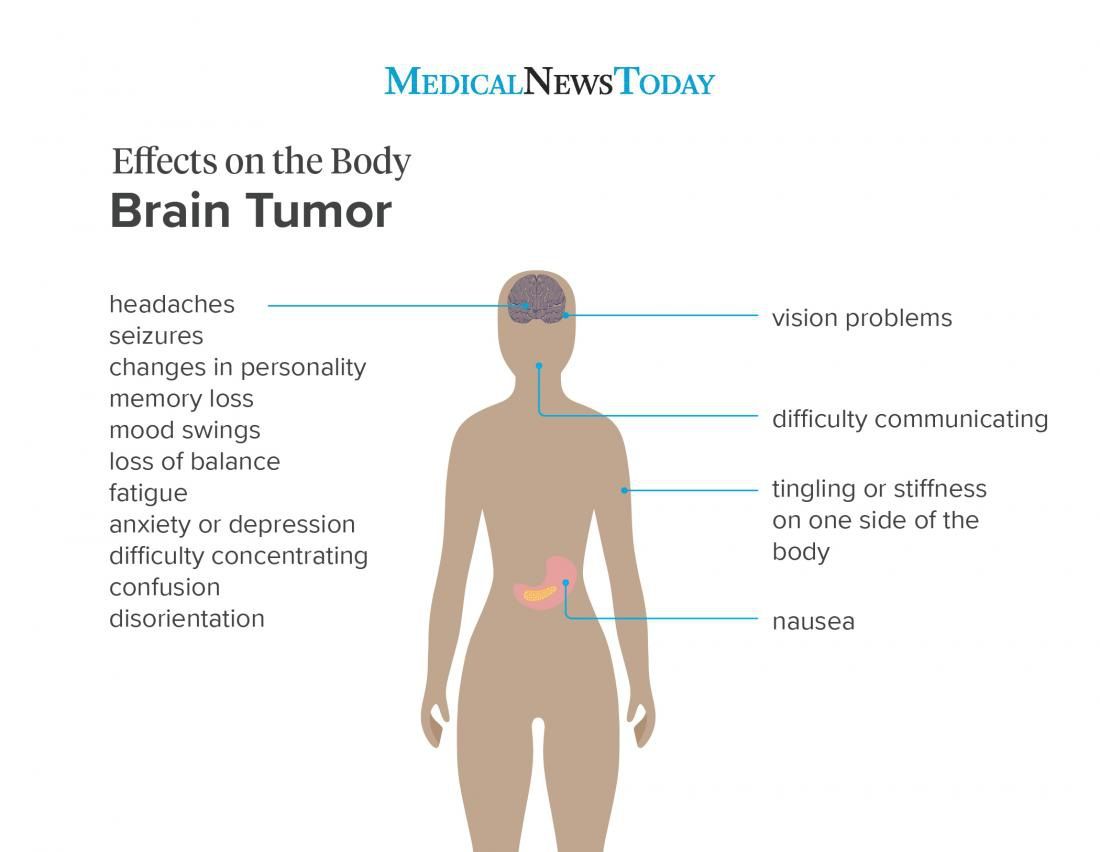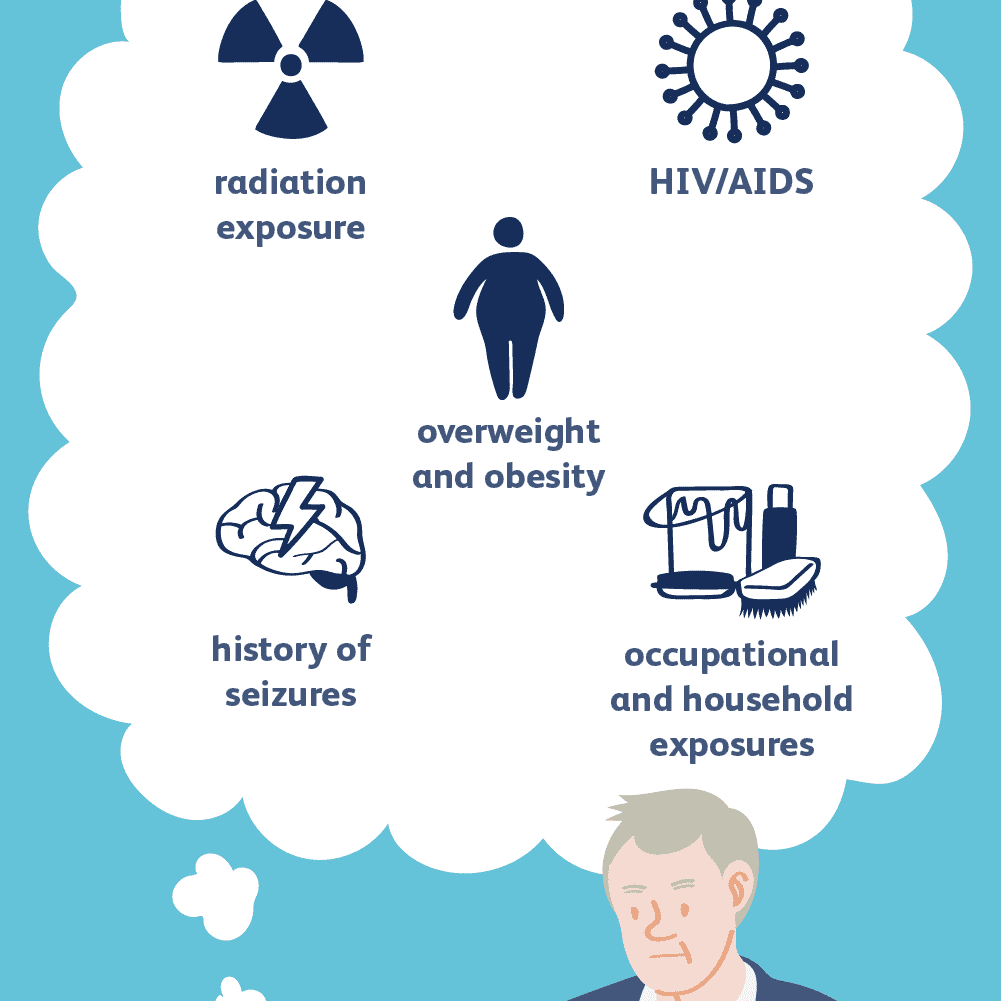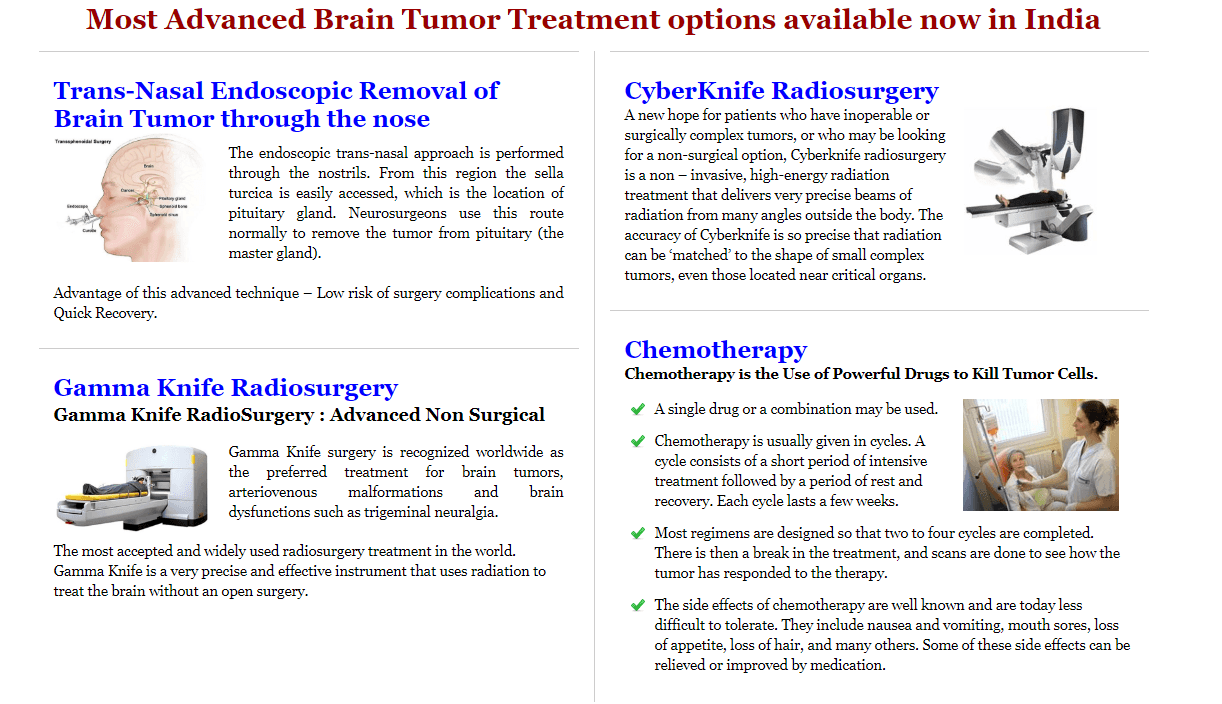
A brain tumour is a life-threatening condition and can be fatal if not detected or treated on time. Basically, a tumour is a mass of abnormal cells in the brain that usually multiplies in an uncontrollable way. Tumours can either be cancerous (malignant) or non-cancerous (benign) and when either of these tumour types grows rapidly, they build pressure inside the skull which causes damage to the brain.
Tumour Grades and Types:
| 13.3 vs. 7.8 years | Median overall survival for patients receiving radiation plus chemotherapy versus radiation alone. |
| 10.4 vs. 6.1 years | Median progression-free survival for patients receiving radiation plus chemotherapy versus radiation alone |
| 60 vs. 40 percent | Rate of overall survival at 10 years for patients receiving radiation plus chemotherapy versus radiation alone |
| 13.1 vs. 5.1 years | Median overall survival in patients with tumors that have and don’t have a mutated IDH1 gene, regardless of treatment |
| Most favorable outcomes | Patients with oligodendroglioma treated with radiation plus chemotherapy |
Brain tumours are graded from 1 to 4, based on certain factors, like their aggressiveness to multiply or their likeliness to come back after the treatment, etc.
Benign brain tumours are low grade (grade 1 or 2), which means they grow slowly and are less likely to return after treatment. Whereas, malignant brain tumours are high grade (grade 3 or 4) and they either originate in the brain from the brain cells, nerve cells or glands (primary tumours) or spread into the brain from another organ such as breast, skin or lungs, etc. (also called as secondary tumours).
Symptoms of A Brain Tumour

Symptoms of a brain tumour may vary depending on the location and size of the tumour. One might experience noticeable symptoms such as persistent headache, seizures (fits), nausea, vomiting and drowsiness. Besides, an individual may experience mental or behavioural changes, such as memory loss or personality changes, progressive weakness, paralysis, vision or speech problems and changes in the ability to hear, taste, or smell. So, if you face any of these symptoms regularly or on a constant basis, you should seek an appointment with your neurosurgeon, immediately.

People, devoid of any sex or age, including young children, can develop a tumour in their brain, although they tend to be more common in the elderly. Only about 10 per cent of all tumours are genetically inherited, or hereditary. Also, the risk for most types of brain tumours increases with age. Any previous radiotherapy treatment to the head further increases your risk factor.
Diagnosis
Diagnosis of a brain tumour begins with a physical exam where your neurosurgeon may evaluate your muscle strength, coordination, memory, etc. and a few confirmatory tests such as CT Scan/MRI of the Head, Angiography, Brain Scan, Skull X-Ray and Biopsy, etc.
Treatment of Brain Tumours
The only way to treat most brain tumours is through minimally invasive surgery, during which a surgeon removes the mass of abnormal cells.
The success of a brain tumour surgery largely depends on its location as some tumours allow for easy and safe removal while others may be located in an area that limits how much of the tumour can be removed. For instance, in the case of tumours of the pituitary region, the finest team of Indian Neurosurgeons perform endoscopic Trans-Nasal approach. Similarly, high-energy and non-invasive Cyberknife Radiosurgery is performed in case of patients who have complex tumours.
Advanced Brain Tumour Surgery Benefits
- Low-Risk Surgeries
- Minimally to almost Non-Invasive
- Precise & Effective
- No Blood Loss
- Quick Recovery
- Surgery is often followed by radiotherapy or chemotherapy. It’s necessary to completely destroy any cancerous cells left behind.
It’s important to note that for most benign tumours, treatment is often successful and a full recovery is possible.
Brain Tumour Surgery Cost in India

Get Free Expert Opinion Online from India’s Most Experienced Brain Cancer (Tumour) Specialists Right Now
We Assure Most Affordable Estimates with in 48 Hours from Top Brain Cancer (Tumour) Treatment Hospitals in India


We help you get FREE Expert Opinion from Top Doctors at Best Hospitals in All Major Cities in India.
At SafeMedTrip – Brain Tumour Treatment from Best Hospitals in India, we understand how overwhelming it is to get treated away from home. Keeping your apprehensions in mind, we make sure to assist you at every step.
We have a tie-up with top private hospitals in India that excel at brain tumour surgeries and offer the most advanced and world acclaimed treatments of tumour removal such as Trans-Nasal Endoscopic approach, Gamma Knife Radiosurgery and CyberKnife Radiosurgery, etc. These super- speciality hospitals are accredited by JCI (Joint Commission International) & NABH (National Accreditation Board for Hospitals & Healthcare Providers).

 Click to WhatsApp
Click to WhatsApp +91-9899993637
+91-9899993637


















